
Call Of Cthulhu Review
2018 has been a disappointing year for horror games. With no new AAA titles and a succession of disappointing indies (I’m looking at you in particular Agony and Lust For Darkness), it’s come down to Cyanide Studios to end the year on a high with Call Of Cthulhu. Inspired by the pen-and-paper RPG of the same name, which in turn was an adaptation of H. P. Lovecraft’s eponymous Mythos, Call Of Cthulhu is janky (and at times borderline broken), but ultimately charming and thoroughly engaging.
Telling an original story within the Mythos, players control Edward Pierce, a gruff, alcoholic private investigator who suffers from debilitating PTSD and hasn’t taken a case in months. At risk of losing his license, he accepts a job investigating the mysterious death of Sarah Hawkins, a famous - but troubled - painter on the strange, gloomy Darkwater Island. Without heading into spoiler territory, it soon becomes readily apparent that things aren’t quite right on Darkwater.
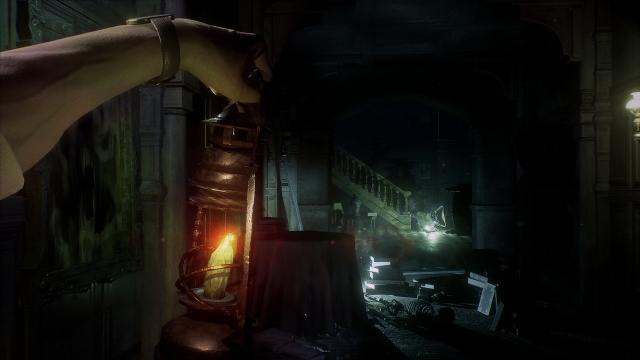
Being a Lovecraftian tale, Call Of Cthulhu relies heavily on atmosphere, fear of the unknown, and a slow, methodical pace. If you’re used to titles like Outlast and the more recent Resident Evil games, which have the subtlety of a sledgehammer and throw jump scares at you in the first few minutes, you’re likely going to find yourself wondering when the “horror” actually starts. Indeed, the first couple of hours of the game only hint at the dark, otherworldly terrors that lurk below. But that’s exactly why it’s so effective: Lovecraft was a master of creating tension and unease, which slowly unravels into all out insanity as his stories reach their climax. Call Of Cthulhu is no different. If you stick it out past the first couple of hours (which are still an interesting and immersive world building experience regardless), you’ll definitely get the sanity-testing, reality-defying, cosmic horrors you’ve come for. In fact, the climax of Call Of Cthulhu is one of the best couple of hours of I’ve experienced in any horror game.
And really, it’s the story that is going to keep you going because as a game, Call Of Cthulhu is the roughest of rough gems. From a presentation standpoint, the art style and atmosphere are the perfect homage to Lovecraft’s work. Environments (especially the supernatural ones) are dark, creepy, and show off some impressive real-time lighting effects. Monster designs are faithful to the Mythos while introducing some contemporary flair. But by the Old Ones is performance bad. Textures are muddy (which can be improved by turning off anti-aliasing at the expense of introducing the dreaded jaggies), animations are stiff, character models sometimes look like they could be from the PlayStation 2 era, lip-syncing is at times so off it’s comical, and there are visual glitches (like limbs clipping through clothes) far more often than there should be.
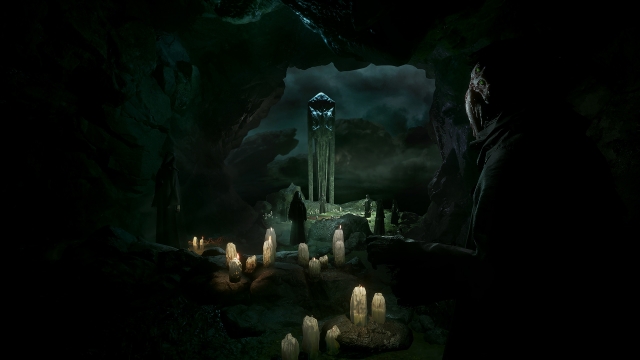
The sound design and music range from excellent to “did someone actually QA test this game?” Ambient music and environmental sound effects are used sparingly, creating an extremely effective, stomach-knotting soundscape. When you’re walking down a dimly lit, slimy cave bathed in a weird teal light with nothing but the sound of a slowing rising minor chord, your footsteps, and the occasional groan or chant of unseen terrors, it’s bloody scary. But then when some oddly asynchronous synth music starts pulsating in this early 20th century setting it takes you out of the moment. Then there’s the voice acting, which varies wildly in quality. Pierce and a few of the other main characters are portrayed quite well, but many of the less important NPCs sound hammy and silly. Occasionally it’s also clear that certain lines of dialogue within the same conversation were not recorded at the same time, creating jarring changes of tone. And if that weren’t enough, spelling and grammar errors abound in the subtitles and journal entries. When you have a game that is able to create an immersive and intriguing environment as well as Call of Cthulu does, there’s no faster way to get taken out of the moment than unforgivable errors like that.
Gameplay is equally a mixed bag. Heavily inspired by the 1980’s pen-and-paper RPG, Call Of Cthulhu is first-and-foremost an investigation/RPG hybrid when it comes to gameplay. If you’re a veteran of survival horror titles like Silent Hill, The Evil Within, and Amnesia: The Dark Descent, you may find yourself frustrated by the lack of survival horror mechanics in the title. In fact, Pierce has to face off against or hide from enemies only a few times throughout the game. If you go into Call Of Cthulhu expecting inventory management, mind-bending puzzles, hide-and-seek sessions with monsters, and combat, you’re going to be disappointed. That being said, what is here is actually implemented well, and the relatively slow pace of the gameplay actually gives the story and atmosphere room to really get under your skin.
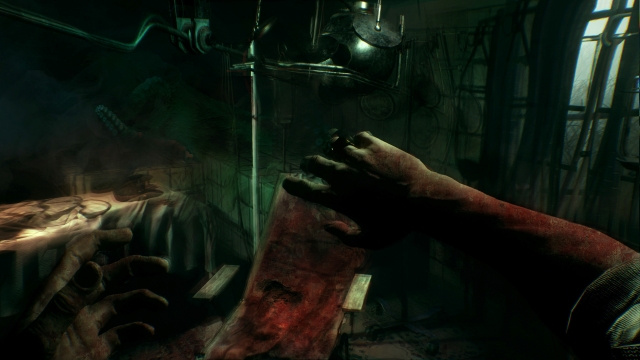
Investigation involves a combination of exploring the environment looking for clues, piecing together said clues, following the next lead in the case, and talking to NPCs. This is where the RPG mechanics come in. Pierce has a variety of skills that players can invest points in, allowing them to build a character of their choosing, which in turn influences how they approach puzzle solving, deducing conclusions, and NPC interactions. For example, you can invest heavily in Strength, and threaten or strongarm people into giving you information, bust open locked containers, and even sometimes entirely skip puzzles by just breaking or forcing a mechanism to work. In reality, the game isn’t as heavily changed by character building as it makes out. The story follows the same basic narrative arc regardless of whether you’re a tough guy, an empathetic master of the human psyche, or an eagle-eyed sneak who can spot hidden clues. Instead, you’ll find yourself taking a different path through the same overall story beats, seeing slightly different parts of each chapter’s environment, understanding varying aspects of the case to varying degrees, or unlocking unique dialogue choices with NPCs.
One aspect that does have long lasting, varied consequences is the “Sanity” meter. Every now and then, you’ll need to make some decisions (take an NPC with you, do/don’t drink, read/don’t read a book, etc.) and whatever you pick, you’ll be ominously told “This will affect your destiny.” There are also certain scripted events that you may or may not experience depending on how you build your character, and whether you uncover particular clues and investigation threads. These are usually horrific events that leave a scar on Pierce’s mental state. These two mechanics then mysteriously result in a net “Sanity” rating, which in turn affects how deeply Pierce understands the “true” nature of things (mechanically this involves gaining access to unique dialogue choices and scenes in the game), as well as influences which ending you’ll see. It’s a clever game mechanic which is perfectly in line with one of the key themes of Lovecraft’s work: forbidden knowledge. This leads to some interesting decision making, as typically the more you uncover, the more this deteriorates Pierce’s mental state, which results in a rather cool balancing act between indulging your compulsive completionist tendencies and wanting to keep poor old Pierce safely ignorant of the cosmic horrors of the Great Old One. That being said, it’s almost impossible to work out how much any one thing has affected Pierce, with some hugely traumatic events seemingly doing nothing, while other small details push him over the threshold of the next category on the meter, so it can become a guessing game at times.
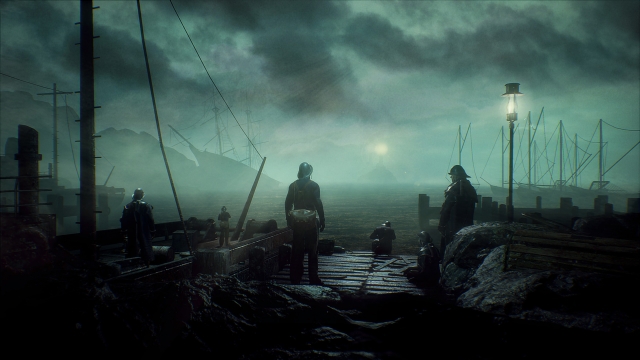
Call Of Cthulhu is easily one of the most engrossing horror games of the last few years. The story is very well paced, the characters are interesting, the atmosphere and art style are truly Lovecraftian, and the RPG and Sanity mechanics mean that there is a fair degree of replayability. It’s an absolute must for fans of Lovecraft and slow-burning psychological horror, and a great gateway title if you’re unfamiliar with the source material or looking to start playing horror games. You’ll just have to look past its severe lack of polish to really get the most out of it.
Call of Cthulhu (Reviewed on Windows)
This game is good, with a few negatives.
An unpolished, but ultimately charming and engaging take on H. P. Lovecraft's most famous creation. A must for psychological horror fans.


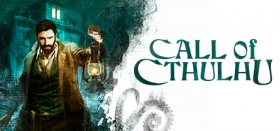






COMMENTS